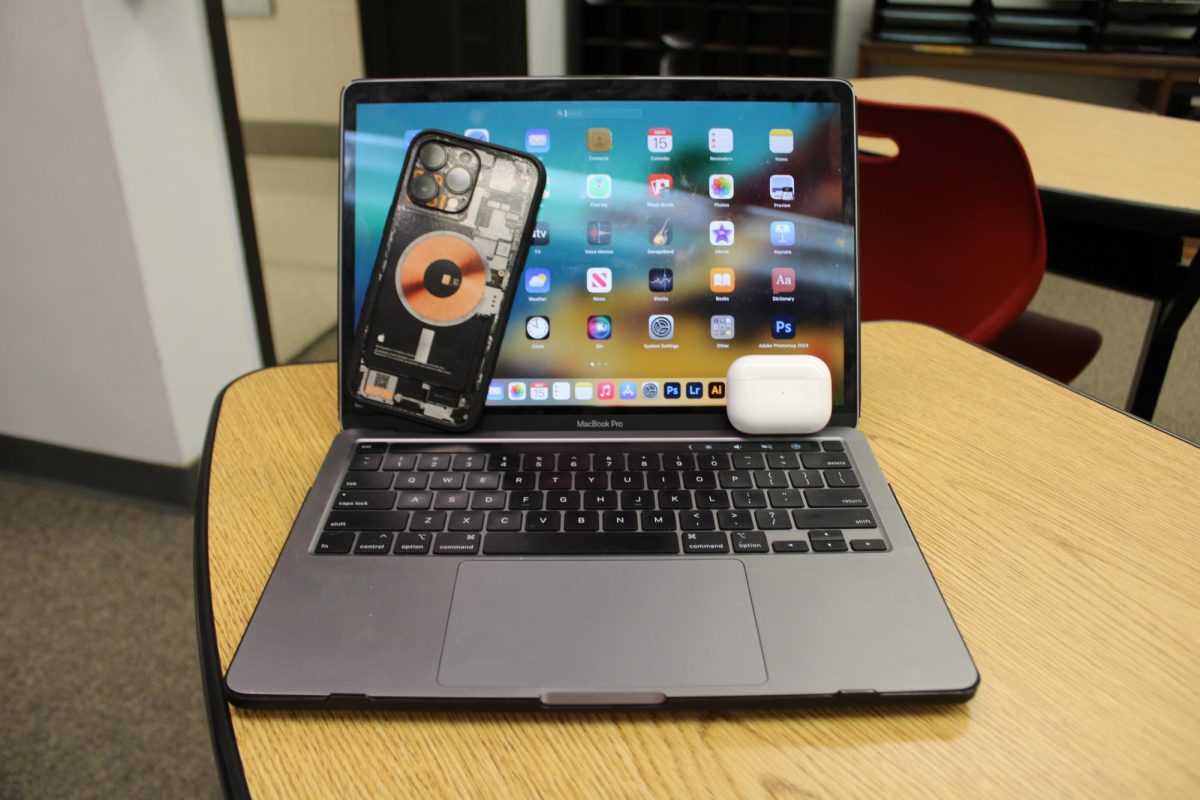“You’re addicted to your phone.” That’s about the biggest complaint teens nowadays hear. Constantly, elders are hounding our generation for the amount of time we spend behind a screen. They tell us how it is going to turn us into mindless zombies and how it will melt our brains. We have all heard these complaints. The sad part is that they might be right.
Since the creation of the iPhone, humans of all ages below sixty have gravitated toward the technology. Communication across the country possible in a matter of seconds, unlimited entertainment, easily accessible and a full-fledged camera that fits in your pocket. All that makes the hype seem warranted. Unfortunately, with so much ability, so easily accessed, with such minimal effort, a dependence blossoms quickly.
“Students are to the point where they can’t do basic tasks without Google,” Ms. Maria Porter, History and Psychology teacher, said. “The ability to think creatively and independently has disappeared.”
Long story short, just because a phone has the ability to do a certain task does not necessarily mean that it should be the main source in life to do such task. Teens begin to depend fully on their phones to talk, entertain or make memories. People’s lives can quickly become confined to a six-by-three box made of metal and glass.
“I have friends and students around me who always say how they can never imagine living without their phone or Wi-Fi,” Josephine Brenckle (12) said. “I guess that makes sense because we are so used to it.”
According to explodingtopics.com, teenagers spend almost nine hours a day on their phones. This statistic alone is enough to make many teens feel a certain way about their choices. Furthermore, this only accounts for time spent on a smartphone. This excludes time spent watching television, or playing on a video game console or personal computer. If this does not scream tech is a big part of teen life, what does?
Additionally, teens sleep for on average about seven hours every night. Take the nine hours on a screen, plus the seven hours asleep and you get sixteen hours. This means there are eight hours left in the day for school, sports, or anything other than having your eyes closed or on a screen. This number away from screen may be even lower, howoever, because a majority of assignments during the school day are digital. Students are constantly on their computers during school. They need to be. Society has come to a point where anything outside of a screen is seen as old-fashioned, inefficient and unwanted. With so much of teen life revolving around and depending on a screen, life becomes difficult without them. Many teens are lost and unsure what to do with themselves if they are not holding their phones.
Companies such as Apple are not helping either. Apple released a product called the Apple Vision Pro in early February. The Vision Pro is very similar to a virtual reality headset in that the user wears it on their face. However, this device is slightly different. The Vision Pro classifies as an augmented reality device. This means that the real world is mixed with virtual applications and images that make it so that the internet and all the apps on your phone are right in front of your face, while you can also see the street you are walking down. Despite the $3,499 price tag, teens are still interested in the device, which is worrisome. Many parents are frustrated that their teen’s phones are “glued to their face,” but with something like Vision Pro, that is more true than ever even imagined before.
Times are changing and so out teenagers. Gone are the times when kids and even adults were able to entertain themselves without a phone in their hands. Things are different now, and about the only thing we can do it seems like, is to try and keep our screen time under the sixteen-hour mark.



